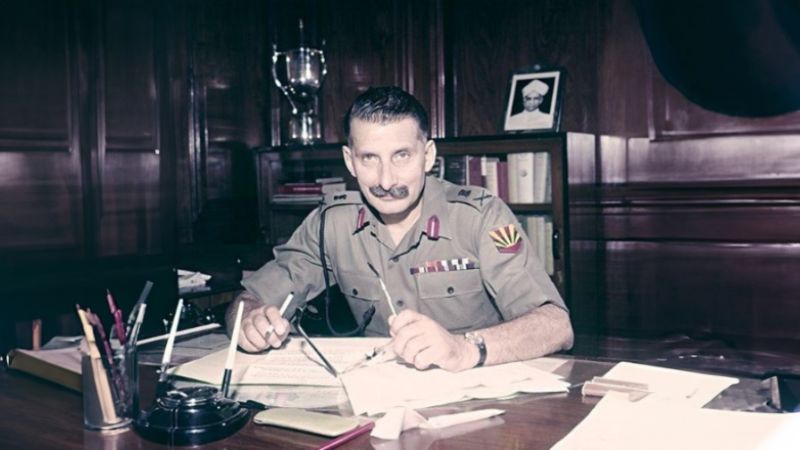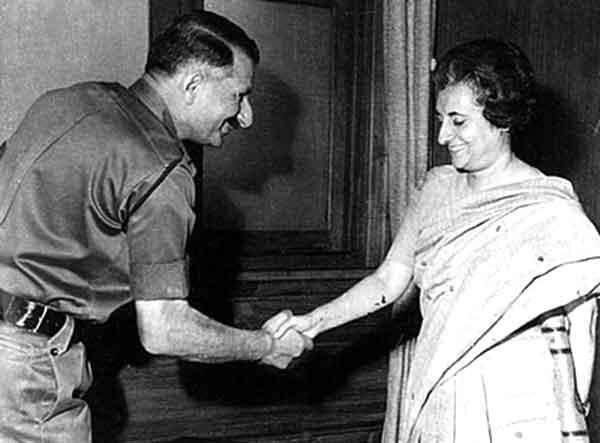Field Marshal Sam Hormusji Framji Jamshedji Manekshaw, affectionately known as Sam Bahadur, was an exceptional military leader whose legacy is deeply etched in the annals of Indian history. As India’s first Field Marshal, Sam Manekshaw made significant contributions to the nation, leading the Indian Army to victory in several crucial conflicts and demonstrating his unmatched leadership and strategic prowess. In this article, we will explore the life and achievements of this legendary figure.
Early Life and Education Of Sam Manekshaw
Sam Hormusji Framji Jamshedji Manekshaw, popularly known as Sam Manekshaw, was born on April 3, 1914, in Amritsar, Punjab, British India. He hailed from a Parsi family and grew up in a military environment, as his father was an army doctor. He attended the Sherwood College in Nainital, and in 1932, he entered the Indian Military Academy, Dehradun.
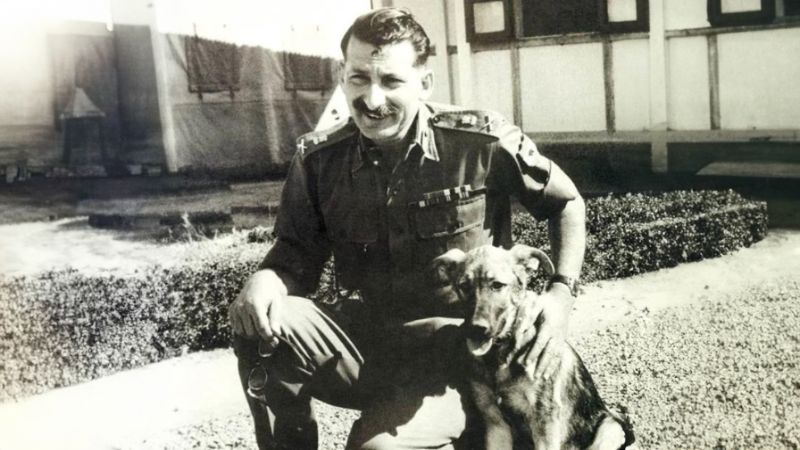
Military Career
Sam Manekshaw’s military career was marked by dedication, bravery, and exceptional leadership. Several key milestones and achievements punctuate his journey:
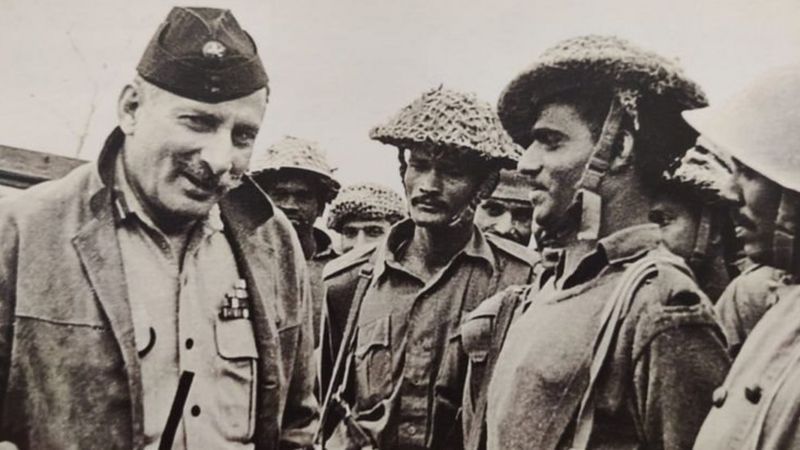
1. World War II Service:
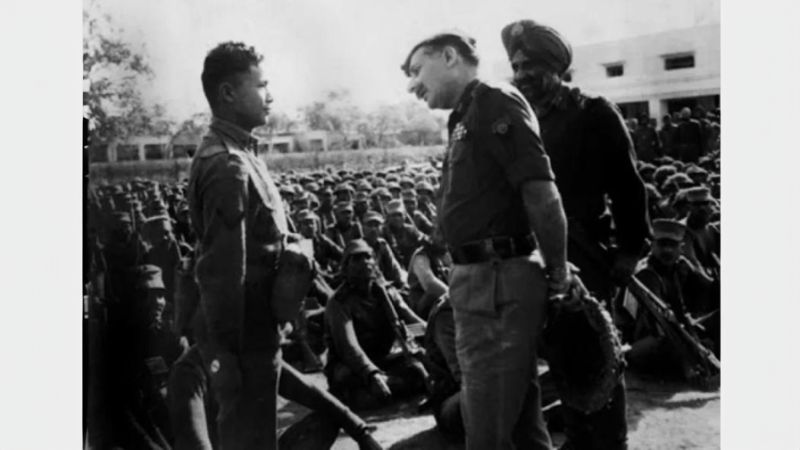
During World War II, he served as an officer in the British Indian Army, where he displayed great courage and leadership. He was awarded the Military Cross for his exceptional performance in Burma. He was known for his fearlessness in the face of adversity and earned the respect of his peers.
During the fighting around Pagoda Hill, a key position on the left of the Sittang bridgehead, he led his company in a counter-attack against the invading Imperial Japanese Army; despite suffering 50% casualties the company managed to achieve its objective. After capturing the hill, Manekshaw was hit by a burst of light machine gun fire, and was severely wounded in the stomach.
Observing the battle, Maj. Gen. David Cowan, commander of the 17th Infantry Division, spotted Manekshaw clinging to life and, having witnessed his valour in the face of stiff resistance, rushed over to him. Fearing that Manekshaw would die, the general pinned his own Military Cross ribbon on him saying, “A dead person cannot be awarded a Military Cross”. This award was made official with the publication of the notification in a supplement to the London Gazette on 21 April 1942 (dated 23 April 1942).
Manekshaw was evacuated from the battlefield by Mehar Singh(not sher singh), his orderly, who took him to an Australian surgeon. The surgeon initially declined to treat Manekshaw, saying that he was badly wounded (was shot 7 bullets throughout his body and Mehar Singh picked Sam B. on his shoulders and walked 14 miles approximately from battlefield to doctor) and his chances of survival were very low, but Mehar Singh Badesha forced him to treat Manekshaw. Manekshaw regained consciousness, and when the surgeon asked what had happened to him, he replied that he was “kicked by a mule”. Impressed by Manekshaw’s sense of humour, he treated him, removing seven bullets from lungs, liver, and kidneys. Much of his intestines were also removed.
2. Independence and Post-Independence:
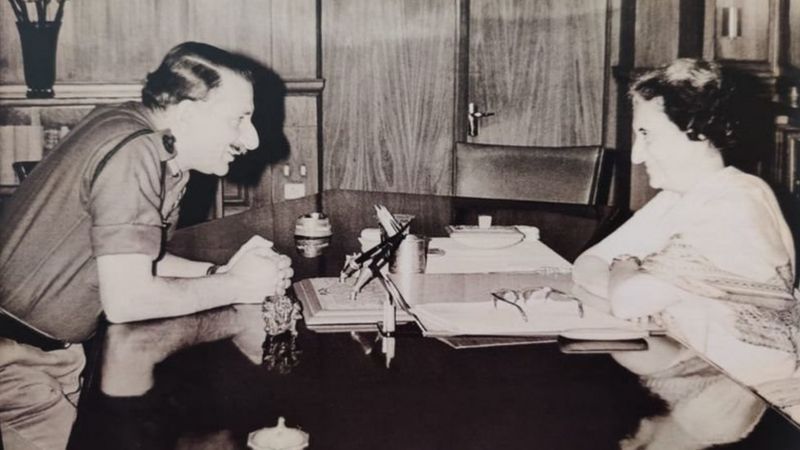
Following India’s independence in 1947, Manekshaw opted for the Indian Army and was commissioned into the 8th Gorkha Rifles. He quickly rose through the ranks.
Manekshaw’s reply to Defence Minister Menon, when he inquired what Manekshaw thought of his chief:
“Mr. Minister, I am not allowed to think about him. He is my Chief. Tomorrow, you will be asking my [subordinate] brigadiers and colonels what they think of me. It’s the surest way to ruin the discipline of the Army. Don’t do it in future.”
3. The 1962 Sino-Indian War:
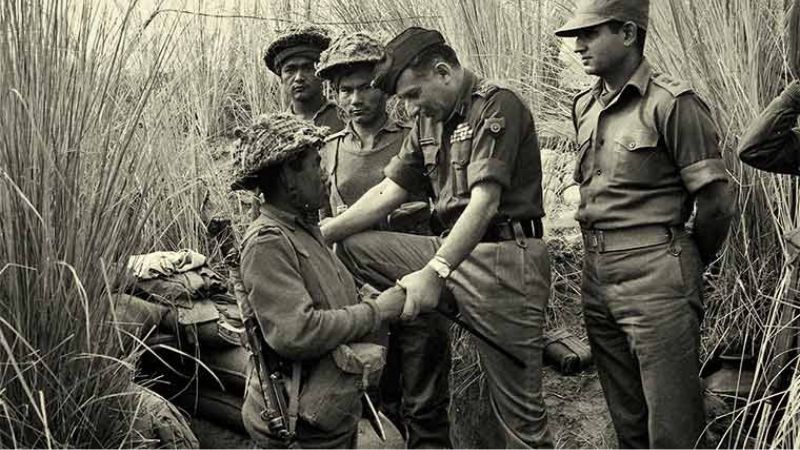
One of the critical chapters in Sam Manekshaw’s career was his role in the 1962 Sino-Indian War, Manekshaw served in various roles during the 1962 Sino-Indian War, and his strategic insights and leadership qualities started becoming evident. He was critical of the political leadership during the conflict and was subsequently appointed as the Chief of the Army Staff (COAS). In this capacity, he played a significant role in reorganizing and modernizing the Indian Army.
4. Chief of the Army Staff:
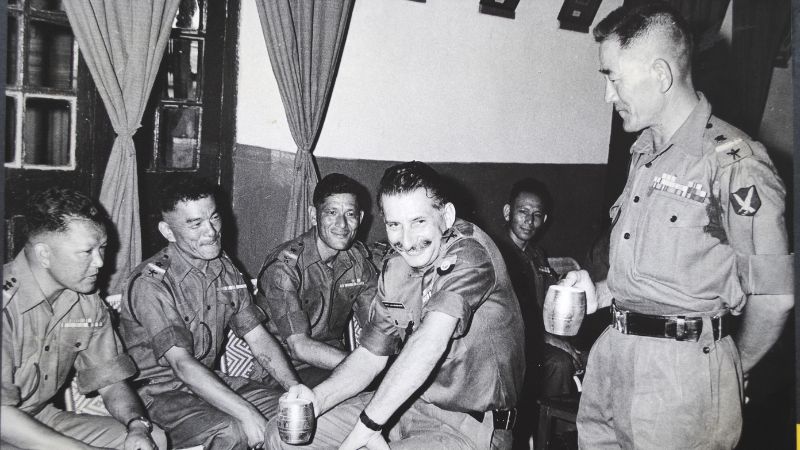
In 1969, he was appointed as the Chief of the Army Staff (COAS), the highest-ranking military officer in the Indian Army. His tenure as COAS was instrumental in modernizing and reorganizing the Indian Army.
In the capacity of COAS, Manekshaw once visited a battalion of 8 Gorkha Rifles in July 1969. He asked an orderly if he knew the name of his chief. The orderly replied that he did, and on being asked to name the chief, he said “Sam Bahadur”. This eventually became Manekshaw’s nickname.
5. The 1971 Indo-Pak War:
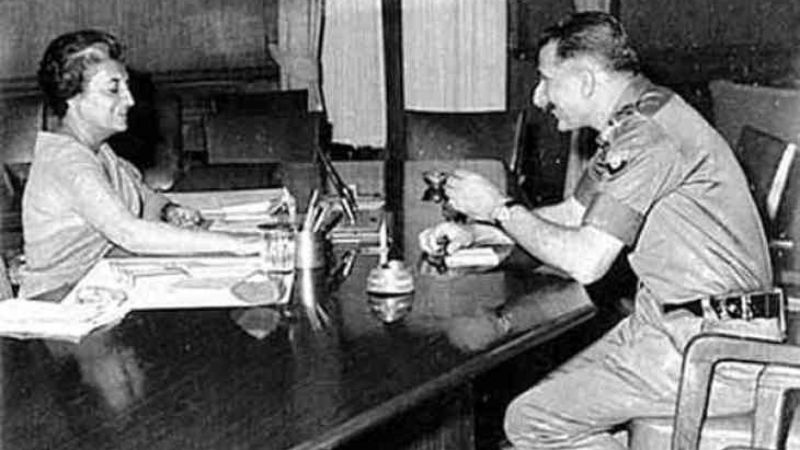
This war was a defining moment in Manekshaw’s career. His brilliant leadership, meticulous planning, and unwavering resolve led India to a decisive victory. This war resulted in the creation of Bangladesh and marked a significant turning point in South Asian geopolitics. His unwavering leadership and composure under immense pressure were instrumental in the war’s successful outcome.
During a cabinet meeting towards the end of April, Prime Minister Indira Gandhi asked Manekshaw if he was prepared to go to war with Pakistan. He replied that most of his armoured and infantry divisions were deployed elsewhere, only twelve of his tanks were combat-ready, and they would be competing for rail carriages with the grain harvest. He also pointed out the Himalayan passes would soon open up with the forthcoming monsoon, which would result in heavy flooding. After the cabinet had left the room, Manekshaw offered to resign; Gandhi declined and instead sought his advice. He said he could guarantee victory if she would allow him to handle the conflict on his own terms, and set a date for it; Gandhi agreed.
Manekshaw’s first radio message to the Pakistani troops on 9 December 1971:
“Indian forces have surrounded you. Your Air Force is destroyed. You have no hope of any help from them. Chittagong, Chalna and Mangla ports are blocked. Nobody can reach you from the sea. Your fate is sealed. The Mukti Bahini and the people are all prepared to take revenge for the atrocities and cruelties you have committed…Why waste lives? Don’t you want to go home and be with your children? Do not lose time; there is no disgrace in laying down your arms to a soldier. We will give you the treatment befitting a soldier”.
6. Field Marshal:
In recognition of his exemplary service and remarkable contributions to the Indian Army, Manekshaw was to retire in June 1972, his term was extended by a period of six months, and “in recognition of outstanding services to the Armed Forces and the nation, Sam Manekshaw was promoted to Field Marshal on January 1, 1973. He became India’s first and only Field Marshal, a prestigious honour for military leaders of extraordinary merit.
Awards and Honors
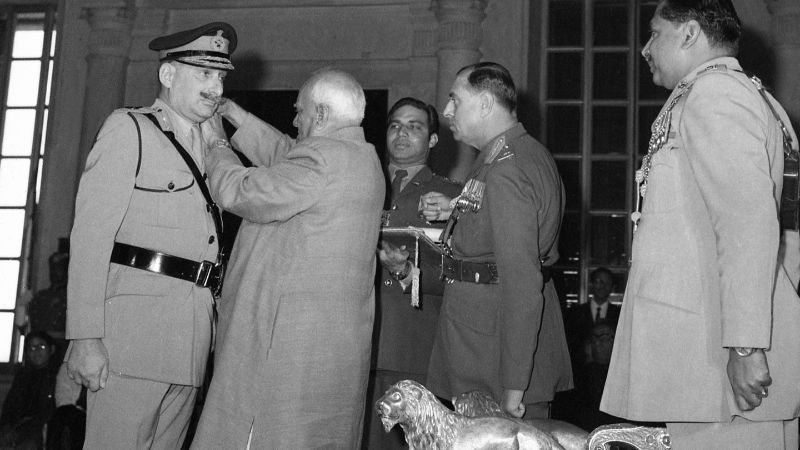
Throughout his career, Field Marshal Sam Manekshaw received numerous awards and honours in recognition of his dedication, valour, and leadership:
- Military Cross (1942): Awarded during World War II for his gallantry.
- Padma Bhushan (1968): One of India’s highest civilian awards.
- Padma Vibhushan (1972): Another prestigious civilian award recognizing his contributions to the nation.
- Field Marshal (1973): As India’s first and only Field Marshal, Sam Manekshaw holds a unique place in the country’s military history.
Later Life and Legacy
Sam Manekshaw retired from the Indian Army in 1973 and continued to be a respected figure in Indian public life. He was known for his wit and wisdom and was often sought after for his opinions on various military and strategic matters. His insights on military matters were widely sought after. He passed away on June 27, 2008, at the age of 94.
Conclusion
Field Marshal Sam Manekshaw remains a legendary figure in India’s military history. His leadership, strategic brilliance, and exceptional service to the nation during times of war exemplify his dedication and commitment to India. Sam Manekshaw’s memory continues to inspire generations of military leaders, and he remains an iconic figure in the annals of Indian military history. His legacy serves as a shining testament to the courage, tenacity, and leadership that the armed forces of India are known for, and he will forever be remembered as India’s first Field Marshal.
Source: Wikipedia
